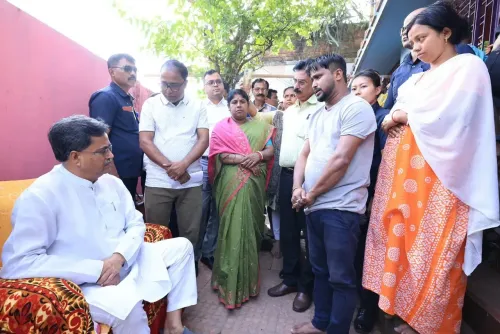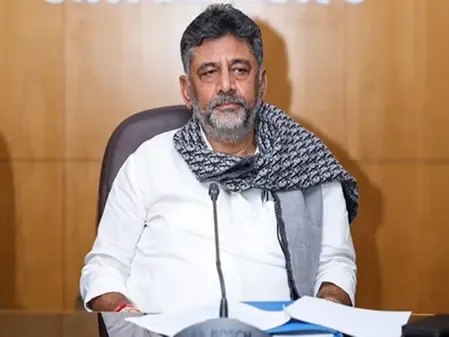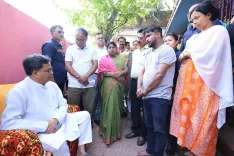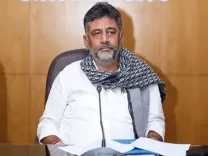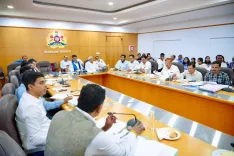Why Did Karnataka Extend the Caste Census Deadline?
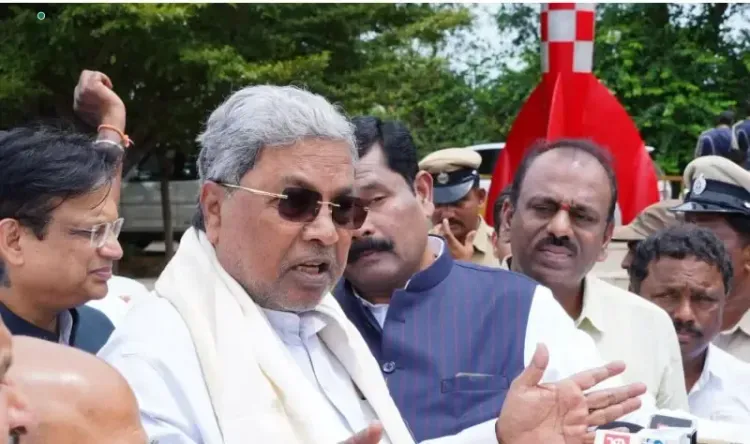
Synopsis
Key Takeaways
- Karnataka extends caste census deadline
- Schools shift to half-day schedules
- Teachers mobilized for enumeration
- Data collection aids in welfare policies
- Privacy measures mandated by court
Bengaluru, Oct 7 (NationPress) Karnataka has announced an extension for government teachers' involvement in the Socio-Economic and Academic Survey, widely recognized as the caste census, moving the deadline beyond the initial cut-off of October 7 due to ongoing enumeration challenges.
The Commissioner of the Karnataka School Education Department, Surlakar Vikas Kishore, has issued an order instructing educators to continue their census responsibilities within the five municipal corporation areas of Bengaluru until October 24 and throughout the rest of the state until October 12.
This decision comes as schools prepare to reopen following the Dusshera festival across Karnataka.
The extension has prompted a swift adjustment to the academic calendar, with Education Minister Madhu Bangarappa announcing that students in government and aided schools will attend half-day classes from 8 a.m. to 1 p.m. until the survey is concluded.
Teachers are now required to allocate their time after 1 p.m. to enumeration duties and will also work on holidays outside Bengaluru to achieve the revised targets.
The original deadline for the caste census was set to conclude on Tuesday, with enumeration in Bengaluru having started only on October 4.
Chief Minister Siddaramaiah has indicated that he will assess the progress and make an appropriate decision by today.
The Education Department's directive also mandates that teachers work on holidays to ensure the caste census is completed by October 12, excluding the Bengaluru area.
Initiated on September 22, the caste census in Karnataka is conducted by the Karnataka State Commission for Backward Classes (KSCBC). The initiative aims to collect data from around seven crore individuals across two crore households through a detailed 60-questionnaire.
The government asserts that the gathered data will assist in shaping welfare policies, recognizing marginalized communities, and facilitating their integration into the social framework.
The statewide caste census is projected to cost Rs 420 crore. To ensure comprehensive coverage, approximately 1.75 lakh government school teachers have been assigned to the survey.
Previously, in 2015, the Congress government led by Siddaramaiah conducted a caste census costing Rs 165.51 crore. However, the subsequent report was put on hold following backlash and intervention from the Congress leadership.
As of October 5, Siddaramaiah reported that data collection had been completed for 1.10 crore households, representing nearly 63 percent of the total effort.
Clarifying the purpose of the survey, the Chief Minister stressed that no questions in the Socio-Economic and Educational Survey should target any specific caste. He noted that opposition to this initiative mainly stems from groups resisting efforts toward a socially fair society.
Meanwhile, the Opposition party, the Bharatiya Janata Party (BJP), has accused the caste census of being a mechanism to facilitate religious conversions and fracture Hindu society.
Union Minister Pralhad Joshi and other BJP leaders have urged citizens to refrain from sharing their details during the enumeration.
The Karnataka High Court has also instructed the government to safeguard the privacy of respondents and to avoid any coercion in the information collection process.

